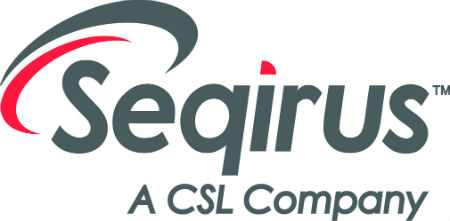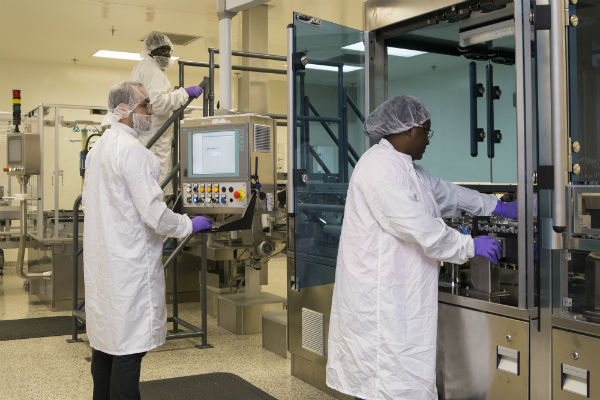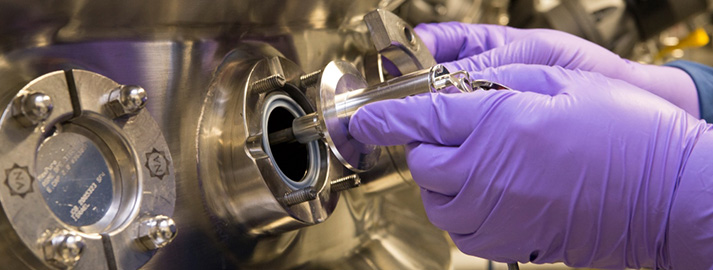
New Flu Vaccine from Holly Springs Gets FDA Green Light

While the coronavirus is taking center stage, a North Carolina biomanufacturer just got the green light for its vaccine to protect humans from another deadly virus: Influenza, “the flu.”
Seqirus, a subsidiary of Australian pharma giant CSL, has a production facility in Holly Springs. It has received the go-ahead from the U.S. Food and Drug Administration to produce and sell its Fluad Quadrivalent vaccine.
The vaccine is specifically developed to protect adults 65 years and older against four strains of seasonal influenza.
Gregg Sylvester, Seqirus’ chief medical officer, said the antigen used in the vaccine is manufactured in Liverpool, England and then formulated, filled and finished at the Holly Springs plant.
It is expected to be available for the 2020/21 influenza season.
The local site, meanwhile, is in the midst of a $140 million expansion, on track for completion in 2022-23.
“We continue to invest in our vaccine technologies and manufacturing facilities to meet growing global demand for our products,” said Sylvester.
A vulnerable population
Worldwide, annual influenza epidemics are estimated to result in about 3 to 5 million cases of severe illness, and about 290 000 to 650 000 respiratory deaths, according to the World Health Organization.

In the U.S., influenza impacts adults 65 years and older with higher hospitalization and death rates compared to young, healthy adults.
During the 2017/18 influenza season, 70 percent of influenza-related hospitalizations and 90 percent of influenza-related deaths occurred in this age group, according to the U.S. Centers for Disease Control and Prevention.
“Influenza vaccine effectiveness is also a challenge in this population because of age-related immune decline that makes it more difficult for the body to protect against the influenza virus,” said Sylvester.
“The MF59 adjuvant was designed to address these challenges by strengthening, broadening, and lengthening the immune response in adults 65 and older,” he said.
The company said the approval marks the “first-and-only” adjuvanted quadrivalent seasonal influenza vaccine approved in the U.S. for adults 65 years and older.
Fluad Quadrivalent is produced using an egg-based manufacturing process, and contains all four influenza strains recommended by the World Health Organization.
The MF59 adjuvant is added to the influenza vaccine to help enhance and broaden the body’s immune response.
“While egg-adapted changes may occur, vaccines with MF59 adjuvant have been shown to produce more cross-reactive antibodies which have the potential to protect against circulating influenza strains that are not contained in the seasonal vaccine,” said Sylvester.
Influenza versus coronavirus
Although influenza and COVID-19, the illness caused by the new coronavirus, are both infectious respiratory illnesses and the symptoms look similar, they are caused by different viruses.

COVID-19 is caused by one virus, the novel 2019 coronavirus; and the flu is caused by any of several different types and strains of influenza viruses.
As coronavirus is quite different from influenza virus, Seqirus said it is not a core area of focus for the company.
However, it has investigated possible adjacencies in expertise, technologies and facilities that might be able to contribute to the global effort.
“We are pleased to advise that we have partnered with the University of Queensland’s COVID-19 vaccine development program. We will provide technical expertise as well as a donation of Seqirus’ proprietary adjuvant technology, MF59, to their pre-clinical development program,” Seqirus said in a statement.
Adjuvants are used in vaccines to create a stronger immune response and to speed vaccine production and output. Seqirus’ adjuvant technology has a long history of use and a strong safety profile in both seasonal and pandemic influenza vaccines. The University of Queensland will use the adjuvant to test the viral protein they are developing with their molecular clamp technology.
“The University of Queensland’s research program is just starting and it will be some months before the success of the program will be known,” Seqirus added. “In the pre-clinical development stage, this is a humanitarian effort, not a commercial one, and CSL is contributing its support to our partners due to the critical need of this public health emergency.”
